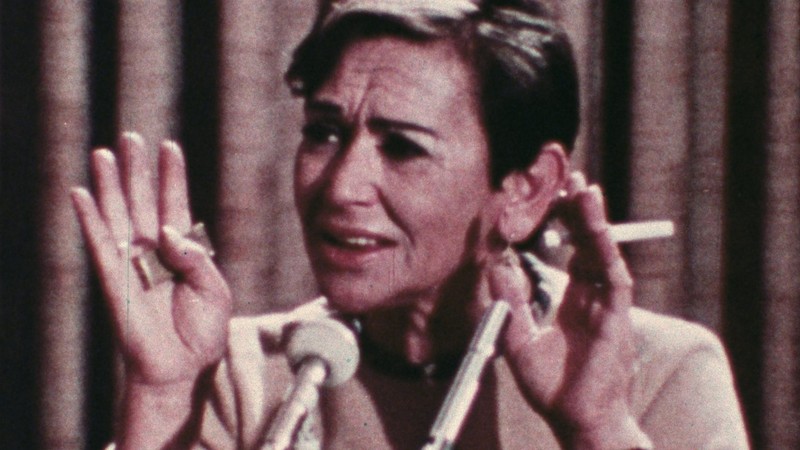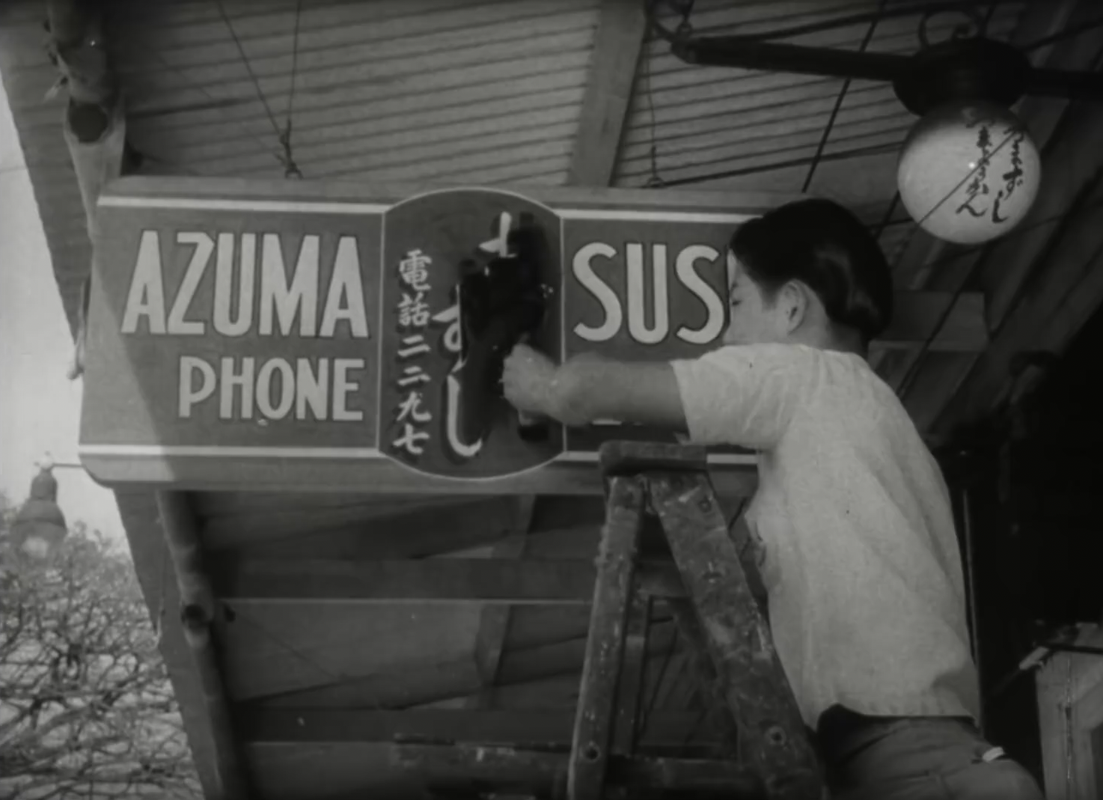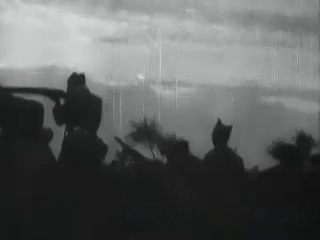Beaubourg, centre d'art et de culture Georges Pompidou [Beaubourg] (Roberto Rossellini, 1977)
Jan
31
1977

Rossellini on site. DPs: Néstor Almendros, Jean Chiabaut & Emmanuel Machuel.
documentary
“I'm right here to stay,
When I'm old and gray,
I'll be right in my prime,
Living in the sunlight,
Loving in the moonlight,
Having a wonderful time!”Street of Dreams – Musical Mirror Maze [Tiny Tim's Street of Dreams] (Martin Sharp, 1988)
Jan
12
1979
.png)
Tiny dressed up as Mickey Mouse. See the complete setup as shot by photographer Robert McFarlane here. DPs: Russell Boyd, Geoff Burton, Tom Cowan, Michael Edols, David Sanderson & Simon Smith.
Oz artist and Tiny Tim aficionado Martin Sharp explores Tiny's 1979 world record singing attempt at Sydney Luna Park and the devastating Ghost Train Fire a few months later on June 9. Sadly, Sharp never managed to complete his vision. The sole reason Street of Dreams is out there as a rough VHS bootleg is thanks to Tiny's custodian spirit. “I know Mr Sharp believes in me so much — and I praise the Lord for that — and maybe he's made a cult movie which at the very least will survive as a museum piece.”, he said, insisting that Sharp would release a rough cut for the Brighton Festival.
– Tiny Tim, Livin' In The Sunlight, Lovin' In The Moonlight (God Bless Tiny Tim, 1968)
Very much like Mr Tim and a carnival ride ablaze, Street of Dreams is its own beast. Growling, off, unpolished, a blaze – ablaze – out of control. Satanic panic that for once feels truthful, cheery almost. Hallelujah, and God bless Tiny Tim!
“Twenty-three years of living with nothing but gutter hypes and junkies!”The Trip Back (Ralph Weisinger, 1970)
Jan
11

Florrie Fisher telling the kids about her highs and lows in the gutter. DPs: Donald Shapiro & Ralph Weisinger.
– Florrie Fisher
Hanoi, martes 13 [Hanoi, Tuesday 13th] (Santiago Álvarez, 1968)
Dec
13
Tue

A collage image of President Lyndon B. Johnson. His face is a hole and footage of a military burial service can be seen. DP: Iván Nápoles.
“If that's Americanism, it's very hyphenated.”December 7th (John Ford + Gregg Toland, 1943)
Dec
7
1941

A Japanese person paints over the Japanese characters on their store's sign. AZUMA PHONE and SUS[HI obscured] can stay. DP: Gregg Toland.
– narrator
“Just take it from me
I'm just as free as any daughter
I do what I like
Just what I like and how I love it I'm right here to stay when I'm old and gray
I'll be right in my prime
Living in the sunlight, loving in the moonlight
Having a wonderful time” Street of Dreams – Musical Mirror Maze [Tiny Tim's Street of Dreams] (Martin Sharp, 1988)
Dec
4
.png)
Tiny Tim performing in front of the Luna Park's fantastic entrance gate (via). DPs: Russell Boyd, Geoff Burton, Tom Cowan, Michael Edols, David Sanderson & Simon Smith.
A theme park*, or in this case, amusement park.
– Tiny Tim, Livin' in the Sunlight, Lovin' in the Moonlight (Al Sherman & Al Lewis, 1930), from God Bless Tiny Tim (1968)
Tiny Tim is a personal hero of mine. A decade after his mainstream TV debut, Tiny's career had taken a tumble but he still was – God bless him – Tiny Tim, and he performed a two-hour-and-seventeen-minute singing marathon at Luna Park Sydney. Just months after that, tragedy hit the park's Ghost Train ride. A fire, arson as it was determined decades later, killed seven. Fellow Tiny-aficionado and OZ artist Don Lane saw a connection between these two events and spend years cutting and editing the musical marathon, nude drunken interview and disaster footage, and Tiny wandering around a mirror maze into a narrative.
Lane passed in 2013 and, in respect of his family's wishes, Street of Dreams remains unfinished.
* the Bales 2025 Film Challenge for December has a few dateless themes. This is one of them.
“I pledge allegiance to the flag–the white flag. I pledge allegiance to the flag of America. When they say “black” or “negro,” it means you’re not an American. I pledge allegiance to your flag. Not that I have to, but just for the hell of it I pledge allegiance. I pledge allegiance to the flag of the United States of America. The white flag, with no stripes, no stars. It is a prestige badge worn by a profitable minority.”Mingus: Charlie Mingus 1968 [Mingus / Mingus In Greenwich Village] (Thomas Reichman, 1968)
Nov
22
1968

Charles Mingus and Carolyn sharing an intimate father/daughter moment in their studio. DPs: Lee Osborne & Michael Wadleigh.
– Charles Mingus
“Oh, it's you.” Mix-Up ou Meli-melo (Françoise Romand, 1986)
Nov
21
.png)
One of the daughters, here as a child, with one of their mothers. DP: Emile Navarro.
A heartfelt reunion scene*
– Margaret Wheeler, welcoming the viewers to this curious retelling of her life's events
Through an unexplained muddle, the Wheeler and the Rylatt girls were mixed up at the maternity ward. One of the mothers, Mrs Wheeler, had a hunch something was off. Her girl was suspiciously long and skinny, unlike the one that was entrusted to her. Over the years and to Mrs Rylatt's increasing chagrin, Mrs Wheeler kept in touch with that woman from the maternity ward. And was proven to be correct. This film is one breezy yet tense reunion scene. Heartwarming, awkward, and – like all that's nostalgia – slightly surreal.
* the Bales 2025 Film Challenge for November is, again, not date-based, but follows a sloppy schmaltzy all-American Thanksgiving-y narrative. Trying to make it work my way.
München-Berlin Wanderung [Walking from Munich to Berlin] (Oskar Fischinger, 1927)
Nov
20
.png)
A bunch of Buben take a moment to pose between troublemaking. DP: Oskar Fischinger.
A journey or road trip*
Four weeks in four minutes, spanning decades in its disruptive form.
* the Bales 2025 Film Challenge for November is, again, not date-based, but follows a sloppy schmaltzy all-American Thanksgiving-y narrative. Trying to make it work my way.
“Fascism is not to be debated, it is to be destroyed.”20 de noviembre de 1936 ¿Te acuerdas de esta fecha, compañero? [20th of November] (1937)
Nov
20
1936

Soldiers in silhouette. Disclaimer: I am not 100% sure this still is from the correct film. DP: anonymous.
A documentary made by the Confederación Nacional del Trabajo in honour of anarchist Buenaventura Durruti, who was murdered on November 20, 1936.
– Buenaventura Durruti